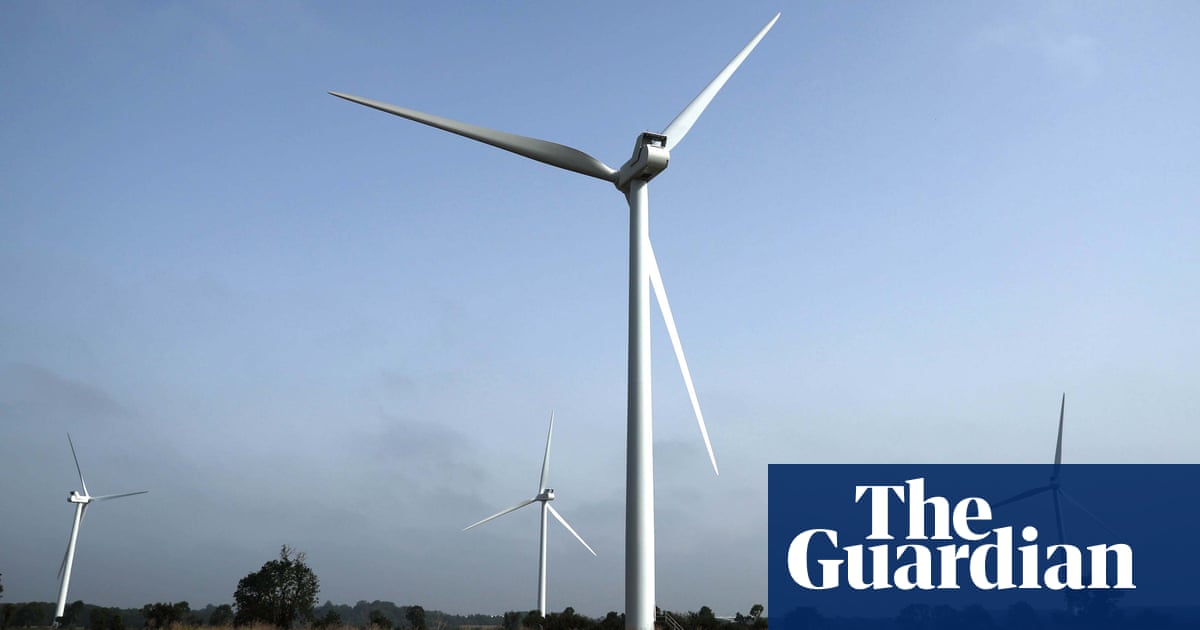
What was in the net zero review?
Chris Skidmore, the head of the government’s net zero review, said he aimed to provide a comprehensive assessment of the UK’s net zero ambitions. The 323-page net zero review covers the whole of the UK’s economy, as well as the impacts on individuals and communities.
Everything from the funding for net zero schemes to the need for regulation, parliamentary scrutiny, data, and research and development is examined, along with sectors of the economy from energy and transport to housing and farming.
There are 130 recommendations, ranging from the highly specific, such as bringing forward the end of routine flaring by oil and gas companies from 2030 to 2025, to vaguer hopes, such as central and local government working more closely together.
Some of the main recommendations cover:
Energy
The government should consider replacing the windfall tax on North Sea oil and gas with a net zero fund that ringfences the proceeds for investment in offshore wind and other low-CO2 projects.
Nuclear power should have a clear strategy, and the government must “double down on achieving the UK’s nuclear baseload requirement”, including small modular reactors and “a fleet of projects”, though the review does not specify how many new power stations should be built.
Hydrogen should have a 10-year delivery plan, set out by the end of this year, that will require decisions on funding and technology, including hydrogen for home heating.
Ministers should also “consider” requiring fossil fuel producers to “take back” the CO2 produced from burning their fuels, by storing 10% of it underground, using carbon capture and storage technology.
Ofgem’s remit should be expanded to include the net zero target.
Homes
The boiler upgrade scheme should be extended, and people given incentives to buy heat pumps.
Skidmore publicly called for “a rooftop revolution”, though some of the recommendations are slightly weaker – for instance, that there should be a consultation on whether new homes should be fitted with solar panels, and a supply chain built up for renewables.
Farming
Environmental land management schemes, the replacement for the EU farm subsidy system, should be laid out in detail this year, the review recommends, which will come as a relief to farmers concerned about the vagueness of current government plans.
Nature-based solutions, which help to increase the UK’s carbon sinks, should also be encouraged.
The review also calls for a biomass strategy, without setting out what should be in it.
Research and development
By this autumn, the government should set out how to create incentives for research and development into new low-CO2 technologies. Three new demonstrator projects should be established.
Finance
The UK could become “the most competitive financial centre” for raising capital for the green transition, so the government should review opportunities for the banking sector and how to encourage investment. There should also be clear rules on how companies should report their climate impacts.
What was missing?
Onshore wind and solar farms
The review suggests taskforces should be set up for the deployment of onshore wind and solar power, rather than calling for clear targets on onshore windfarms and solar farms in England. These have been controversial questions, as some Tory MPs are opposed to onshore windfarms – despite widespread public support for them – and solar farms.
Insulation and home heating
Although home heating accounts for 14% of the UK’s emissions, and is one of the biggest cost-of-living concerns amid soaring gas prices, the review stops well short of recommending the sort of nationwide house-by-house programme of upgrades that campaigners have been calling for, or setting out clear options on how to encourage homeowners to upgrade their energy efficiency.
No new gas boilers should be installed from 2033, the review said, but that is just two years earlier than the government’s current target of 2035.
Those hoping for a clear endorsement of hydrogen for home heating, however – which some hydrogen companies and Tory MPs want but which economists and energy experts say is uneconomic and physically unviable – will also have been disappointed. While not ruling out hydrogen for home heating, the review is notably lukewarm: by the end of this year, the government should update its analysis of hydrogen for home heating “to ensure that the case for economic optimality and feasibility still holds”.
Behaviour change
To meet the UK’s net zero targets, people will have to change their behaviour, from driving less to eating less meat. These changes should be healthier and better for most of us, but they will require some effort.
There are recommendations on eco-labelling and a CO2 calculator for consumers, but beyond that, the review has nothing to say on how consumer behaviour should change, or how the government should encourage behaviour change.
Transport
Emissions from transport have scarcely budged in a decade, and it is now the biggest single contributor to the UK’s carbon footprint. Yet the review gives a scant five recommendations on the issue, two of which are for shipping and aviation.
Public transport merits not a single recommendation, reflecting the absence of government strategy on the subject.
On electric vehicles, the report recommends equalising VAT on public and private electric vehicle chargings – useful, perhaps, but not likely to have any significant impact. Meanwhile, why is there is no mention of the rollout of a nationwide system of charging points experts say is needed?
Verdict
What seeks to be a comprehensive review actually contains huge gaps, reflecting the Tory party’s seeming paralysis over basic issues that need to be grasped, from finding a way to finance the insulation British housing desperately needs, to building out onshore wind, and the absence of any real plan for transport or behaviour change. As a basis for action, this report passes too many bucks to be truly effective – but as an assessment of the government’s failures by a party loyalist, it is devastating.












